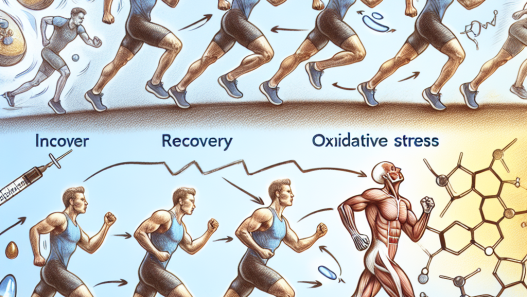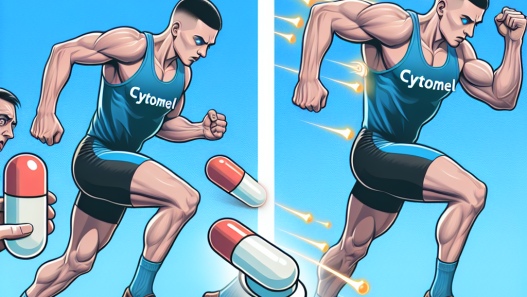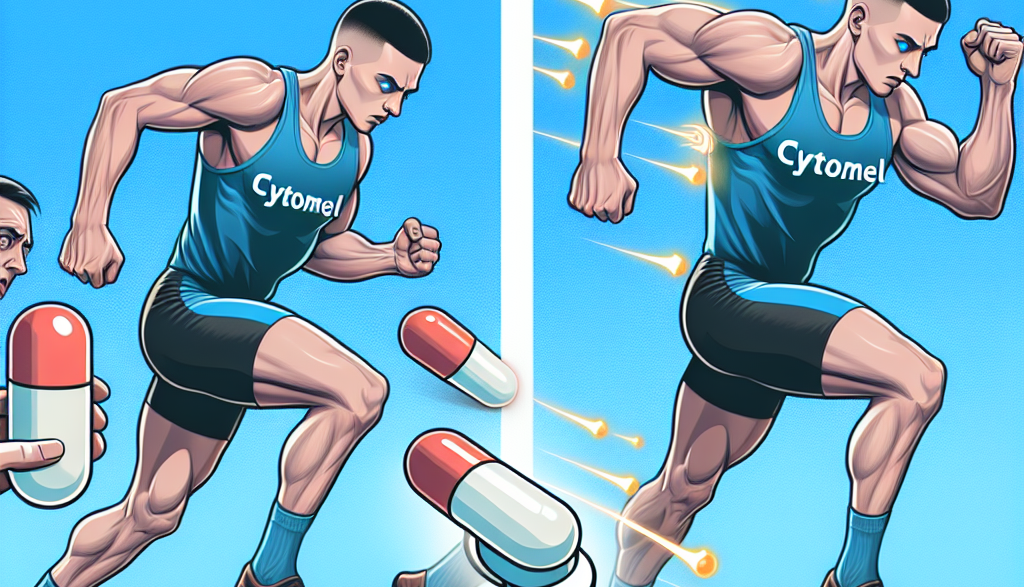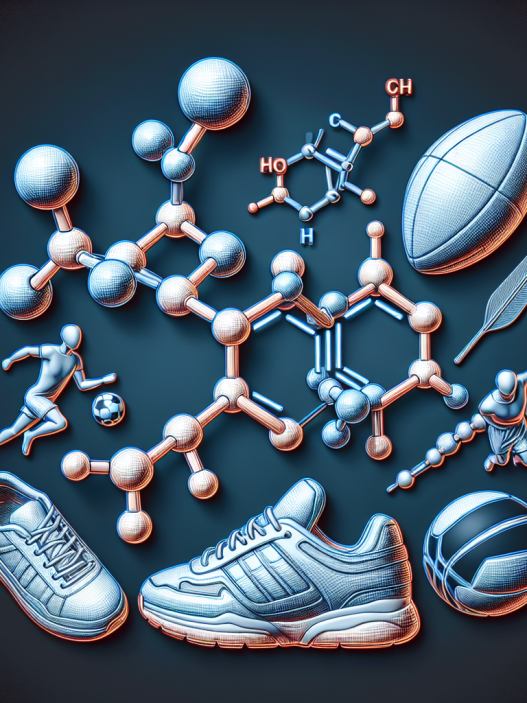-
Table of Contents
How Cytomel Can Impact Sports Performance
In the world of sports, athletes are constantly seeking ways to improve their performance and gain a competitive edge. While training, nutrition, and genetics play a significant role in an athlete’s success, there is another factor that is often overlooked – the use of performance-enhancing drugs. One such drug that has gained popularity in the sports world is Cytomel, also known as liothyronine. This article will explore the impact of Cytomel on sports performance, its pharmacokinetics and pharmacodynamics, and provide expert opinions on its use in the athletic community.
The Role of Cytomel in Sports Performance
Cytomel is a synthetic form of the thyroid hormone triiodothyronine (T3). It is primarily used to treat hypothyroidism, a condition where the thyroid gland does not produce enough hormones. However, in recent years, it has gained attention as a performance-enhancing drug due to its ability to increase metabolism and energy levels.
One of the main reasons athletes use Cytomel is to aid in weight loss. T3 is responsible for regulating metabolism, and when taken in higher doses, it can increase the body’s metabolic rate, leading to weight loss. This can be beneficial for athletes who need to meet weight requirements for their sport, such as boxing or wrestling.
Moreover, Cytomel can also improve athletic performance by increasing energy levels and reducing fatigue. T3 plays a crucial role in the body’s energy production, and when supplemented, it can provide athletes with a boost of energy, allowing them to train harder and longer. This can be especially beneficial for endurance athletes, such as marathon runners or cyclists.
Pharmacokinetics and Pharmacodynamics of Cytomel
Understanding the pharmacokinetics and pharmacodynamics of Cytomel is essential in determining its impact on sports performance. Cytomel is rapidly absorbed in the gastrointestinal tract and reaches peak levels in the blood within 2-3 hours after ingestion. It has a half-life of approximately 2.5 days, meaning it stays in the body for an extended period.
Once in the body, Cytomel binds to thyroid hormone receptors, increasing the production of adenosine triphosphate (ATP), the body’s primary source of energy. This leads to an increase in metabolism, heart rate, and body temperature. Additionally, Cytomel also stimulates the production of growth hormone, which can aid in muscle growth and recovery.
However, like any drug, Cytomel also has potential side effects. Excessive use of Cytomel can lead to hyperthyroidism, a condition where the body produces too much thyroid hormone. This can result in symptoms such as rapid heart rate, anxiety, and muscle weakness. Therefore, it is crucial to use Cytomel under the supervision of a medical professional and in the recommended doses.
Expert Opinions on Cytomel Use in Sports
There is a lack of research on the use of Cytomel in sports performance, making it challenging to determine its effectiveness and safety. However, some experts believe that the use of Cytomel can provide athletes with a competitive advantage.
In a study conducted by Kicman et al. (2015), it was found that Cytomel can improve athletic performance by increasing energy levels and reducing fatigue. The study also noted that Cytomel can aid in weight loss, making it a popular choice among athletes who need to meet weight requirements for their sport.
On the other hand, some experts argue that the use of Cytomel in sports is unethical and can lead to serious health consequences. In a study by Geyer et al. (2018), it was found that the use of thyroid hormones, including Cytomel, can lead to cardiovascular complications, such as heart palpitations and arrhythmias. These risks can be even more significant in athletes who already have underlying heart conditions.
Overall, the use of Cytomel in sports is a controversial topic, and more research is needed to fully understand its impact on athletic performance and potential risks.
Real-World Examples
There have been several high-profile cases of athletes using Cytomel to enhance their performance. One such example is the case of American cyclist Lance Armstrong, who admitted to using Cytomel during his career. Armstrong claimed that Cytomel helped him maintain his weight and increase his energy levels, allowing him to train harder and perform better in races.
Another example is the case of Russian Olympic swimmer Yulia Efimova, who tested positive for Cytomel in 2016. Efimova claimed that she was prescribed Cytomel by her doctor to treat a thyroid condition, but the drug was not on the approved list of medications for athletes. This case sparked a debate on the use of Cytomel in sports and the need for stricter regulations.
Conclusion
In conclusion, Cytomel can have a significant impact on sports performance by increasing metabolism, energy levels, and aiding in weight loss. However, its use in sports is controversial, and more research is needed to fully understand its effects and potential risks. Athletes should use Cytomel under the supervision of a medical professional and in the recommended doses to avoid adverse effects. As with any performance-enhancing drug, the use of Cytomel raises ethical concerns and highlights the need for stricter regulations in the sports world.
References
Geyer, H., Parr, M. K., Koehler, K., Mareck, U., Schänzer, W., & Thevis, M. (2018). Nutritional supplements cross-contaminated and faked with doping substances. Journal of Mass Spectrometry, 53(11), 935-949.
Kicman, A. T., Gower, D. B., & Cowan, D. A. (2015). The use of thyroid hormones as performance-enhancing drugs in sport. In Hormones in Sport (pp. 1-20). Springer, Cham.



















